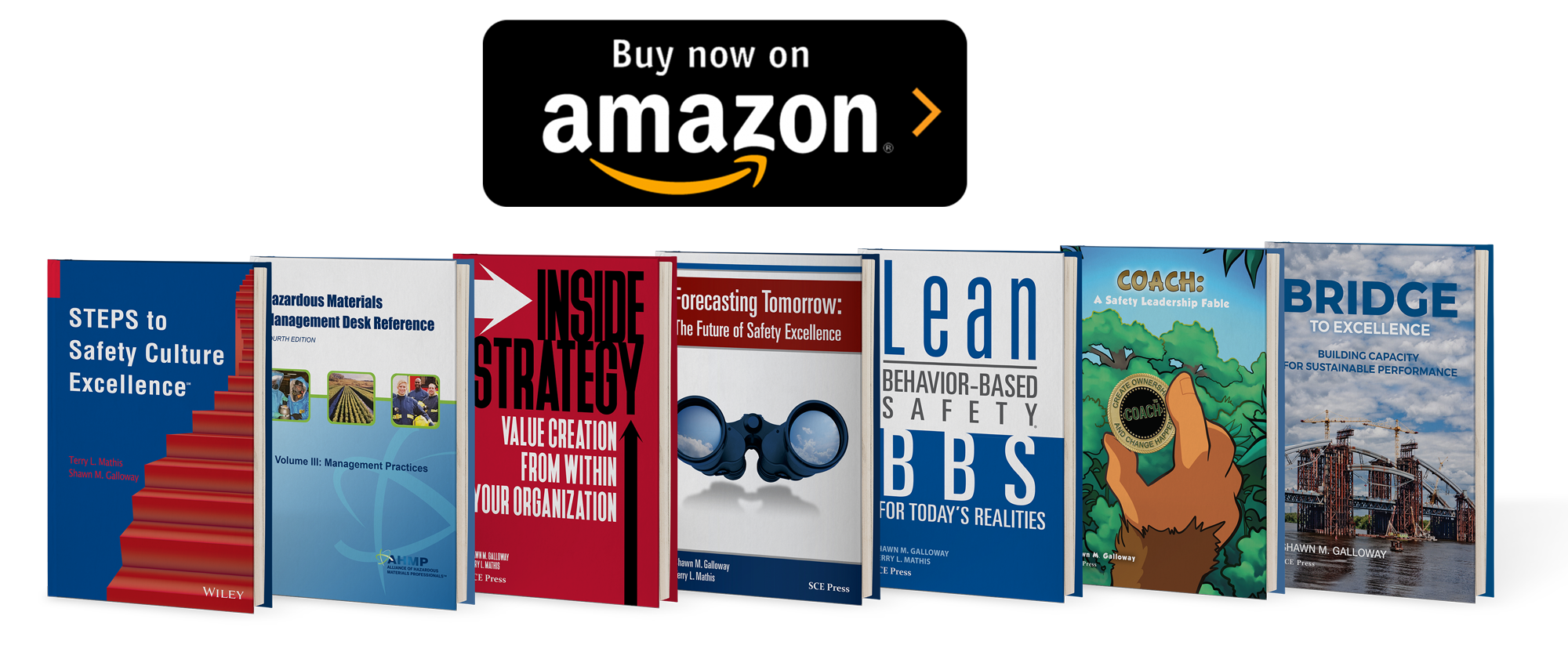BIC - March 2014
By: Shawn M. Galloway
Printable Version
Would you purchase a vehicle with the hood welded shut? Probably not, but this analogy precisely represents how organizations tend to invest in behavior-based safety (BBS).
When a company has determined it is ready for a behavioral approach to injury prevention, who should lead the implementations: external or internal consultants? As an expert in BBS, I believe organizations should look first at internal capabilities.
After auditing and enhancing hundreds of existing BBS processes in every major industry, one unfortunate truth cannot be refuted — organizations that do not attempt to internalize the expertise necessary for long-term BBS success in the beginning rarely do so later on. When the most important information to the process is largely externalized, a consultant must remain on-call, which is not the healthiest way to lead a major improvement in any area of operations. The stickiest of culture changes are led from within.
BBS has lasted as a tool to both enhance safety culture and address and understand what influences discretionary injury-prevention behaviors for several decades. While it certainly isn't the most advanced safety excellence approach, there is a lot to it. However, it does not require one to become an amateur psychologist, sociologist or behavioral scientist to be successful.
Since the late 1990s, more than a thousand individuals have been trained to become Lean BBS Internal Consultants and not all of them were previously advanced safety professionals. From elected union officials, plant managers, executives and even information technology professionals, all have successfully led customized BBS approaches in their own organizations. What they all had in common was their ability to better understand their current culture and what people would and would not support. Therein lies the key to making BBS work for any company in any country — the approach must be made to fit the site rather than the site being made to fit the approach. Certainly an external expert can obtain keen insight into the culture, but within whom does it already exist and how can they be involved to help ensure a culturally sticky, fit-for-purpose approach?
External consultants can certainly add significant value in expertise. Having led hundreds of customized implementations personally, this expertise effectively prevented difficult-to-identify problems from becoming a reality; but how much expertise is enough? Several companies have been quite successful with a single trained and certified individual having only participated in the advanced workshop. Other organizations seeking to implement at many locations are taking what ProAct Safety calls a "hybrid approach to BBS" in which resources (internal and external) are leveraged to gradually internalize the complete methodology in a just-enough and just-in-time format.
Typically, individuals are selected and trained in the many approaches around BBS that yield profound knowledge in putting the theories to practice. These individuals become competent in how to assess the culture and determine the customized implementation path as well as how to audit and continuously improve the process. Then they participate in the first implantation, step by step, returning to their own locations immediately afterward to put in practice what they have just learned.
When purchasing a vehicle with the hood welded shut, one has to rely on a mechanic for any repair. The same rings true when a company does not have the ability to internally modify and improve its approach to safety improvement. Theoretically, any process that contributes to safety improvement and, over time, influences and changes the habits of the work force, also modifies the culture. If the culture is then modified, what worked in the beginning for BBS should be tweaked to fit the new reality. Otherwise it will become an awkward and expensive fit to the culture and something we "once did back in the day."
 Shawn M. Galloway is the CEO of ProAct Safety and co-author of several bestselling books. As an award-winning consultant, adviser, leadership coach and keynote speaker, he has helped hundreds of organizations within every major industry to improve safety strategy, culture, leadership and engagement. He is also the host of the highly acclaimed weekly podcast series Safety Culture Excellence®.
Shawn M. Galloway is the CEO of ProAct Safety and co-author of several bestselling books. As an award-winning consultant, adviser, leadership coach and keynote speaker, he has helped hundreds of organizations within every major industry to improve safety strategy, culture, leadership and engagement. He is also the host of the highly acclaimed weekly podcast series Safety Culture Excellence®.
For more information, call (936) 273-8700 or email info@ProActSafety.com.
